Search Results
Showing results 1 to 20 of 39
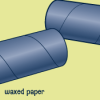
What's the Buzz?
Source Institutions
In this activity, learners construct a playable kazoo from inexpensive materials. They will experience how vibration creates sound waves and music.

Boomerang
Source Institutions
Learners trace, cut out and fly a boomerang, outdoors or in a large indoor space.
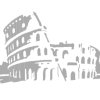
Disappearing Statues
Source Institutions
In this activity (on page 8), learners model how marble statues and buildings are affected by acid rain.
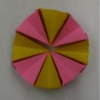
Paper Proteins
Source Institutions
In this activity, learners use an origami template to design eight amino acids. Learners configure the amino acids to form a protein. Use this activity to introduce proteins and amino acids.
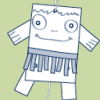
Action Figure
Source Institutions
In this project, students explore how levers work, by making a puppet with moving limbs.
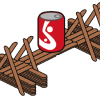
Sticky Structures
Source Institutions
In this engineering/design/arts and crafts activity, learners design and build "platforms" or "bridges" that can hold weight, and test which glue makes the strongest structure.
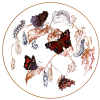
Make Your Own Butterfly
Source Institutions
In this activity (on the left side of page 5, continued on the right side of page 4 of the PDF), learners make models of colorful butterflies.
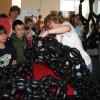
Balloon Nanotubes Tabletop
Source Institutions
This activity introduces learners to the structure and properties of carbon nanotubes.

Crazy About Kites
Source Institutions
In this activity, learners build a kite out of paper, change it, and try to make it fly even better. With their new knowledge of kite making, students can then go on to create their own kite designs.
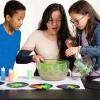
Exploring the Universe: Nebula Spin Art
Source Institutions
In this activity, participants will learn about how gigantic clouds of gas and dust in space, called nebulas, are formed. They'll create their own colorful model nebula using paint and a spinner.

Building a 3-D Space Maze: Escher Staircase
Source Institutions
In this activity (page 95 of the PDF), learners create Escher Staircase models similar to those that were used by Neurolab's Spatial Orientation Team to investigate the processing of information about
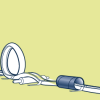
Thrill Ride
Source Institutions
In this activity, learners will build a roller coaster for a marble to run on using everyday household materials such as paper towel or toilet paper rolls, cups, boxes, books, buckets, chairs, etc.
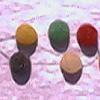
Gumdrop Chains and Shrinky Necklaces
Source Institutions
In this activity, learners thread gumdrops together to make a model of a polymer.

Marshmallow Models
Source Institutions
No glue is needed for learners of any age to become marshmallow architects or engineers.
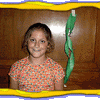
Make a DNA Model
Source Institutions
In this activity, learners make a 3-D model of DNA using paper and toothpicks. While constructing this model, learners will explore the composition and structure of DNA.
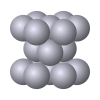
Crystal Packin' Mama
Source Institutions
In this activity, learners investigate the basic crystal structures that metal atoms form.
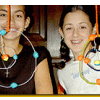
Atomic Mobile
Source Institutions
Learners make a mobile model of a carbon atom using clay, wire, and pipe cleaners.
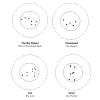
Constellation Scope
Source Institutions
In this activity, young learners explore the basic shapes of constellations by making their own scope out of a cardboard tube and paper with pinpricks.
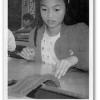
Clay Bridges
Source Institutions
In this activity, learners make bridges using an oil-based modeling clay (plasticene). The instructions include discussion questions for both before and after bridge building.
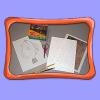
Crazy Camouflage
Source Institutions
In this activity about camouflage, learners create a model that shows how a flounder is able to blend into a variety of environments.
